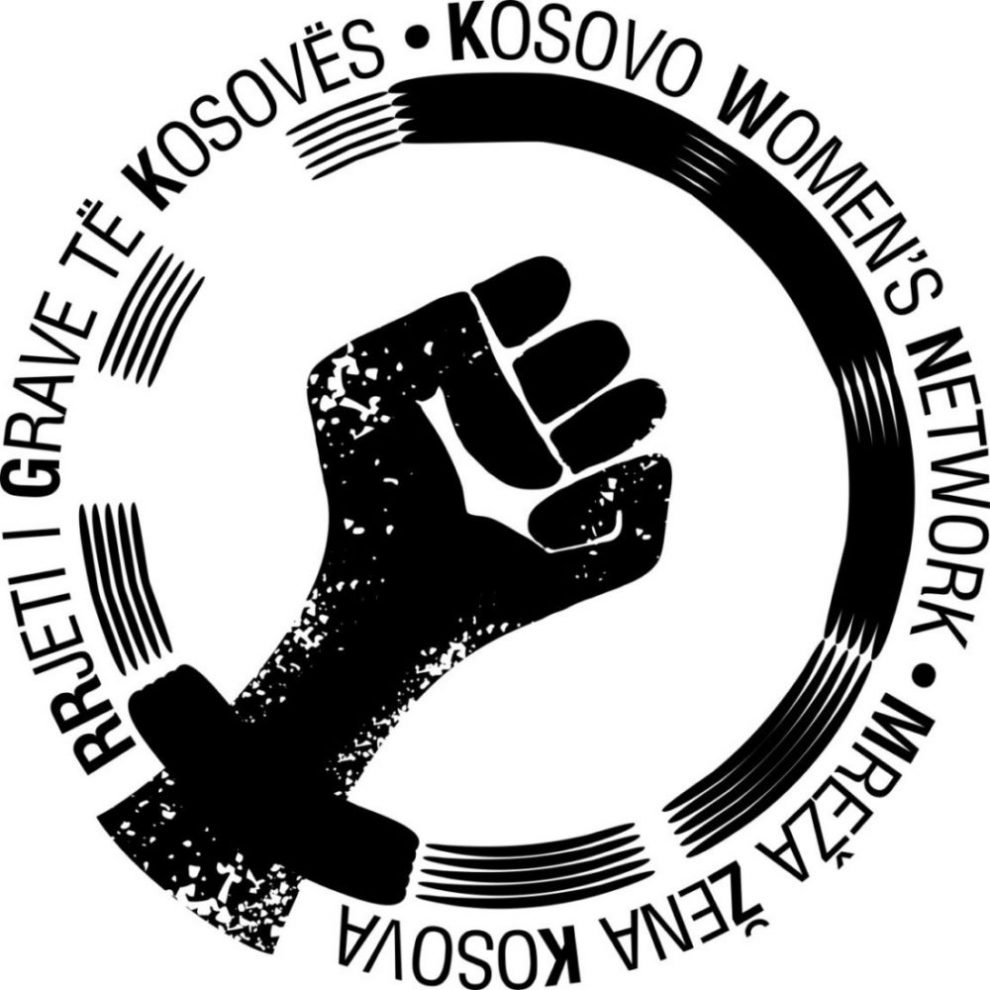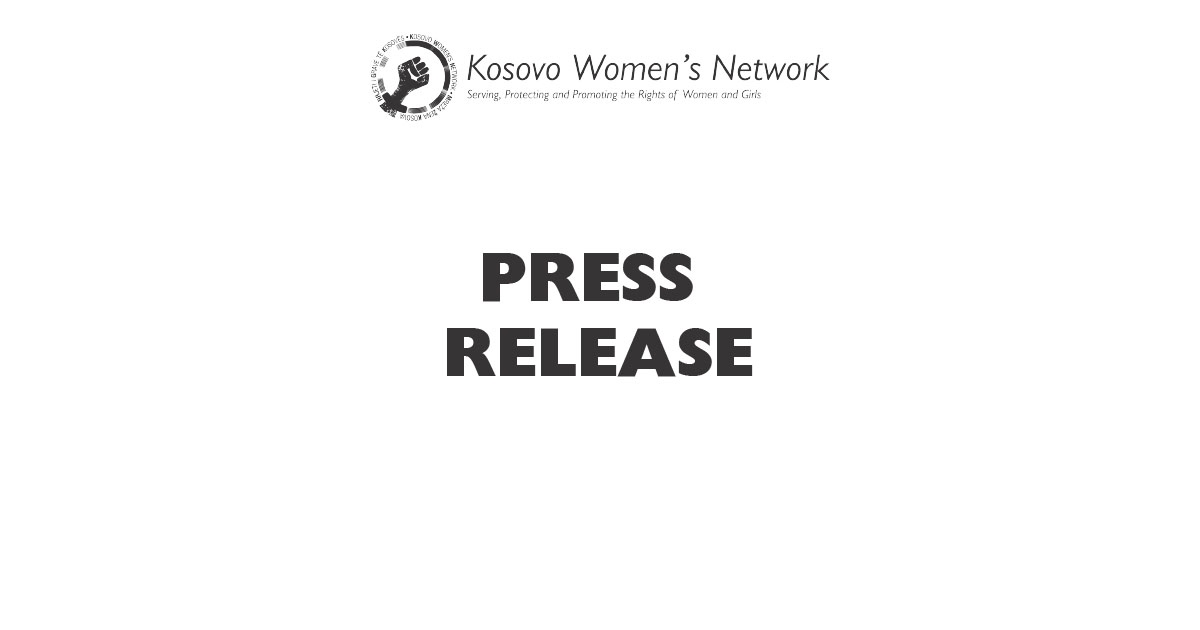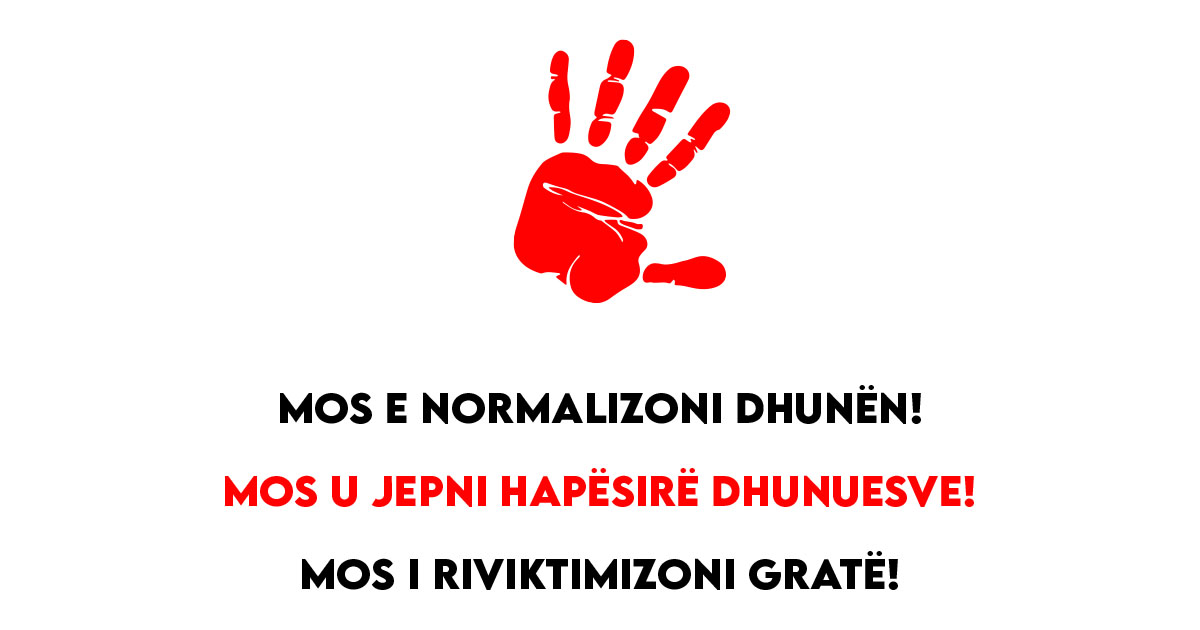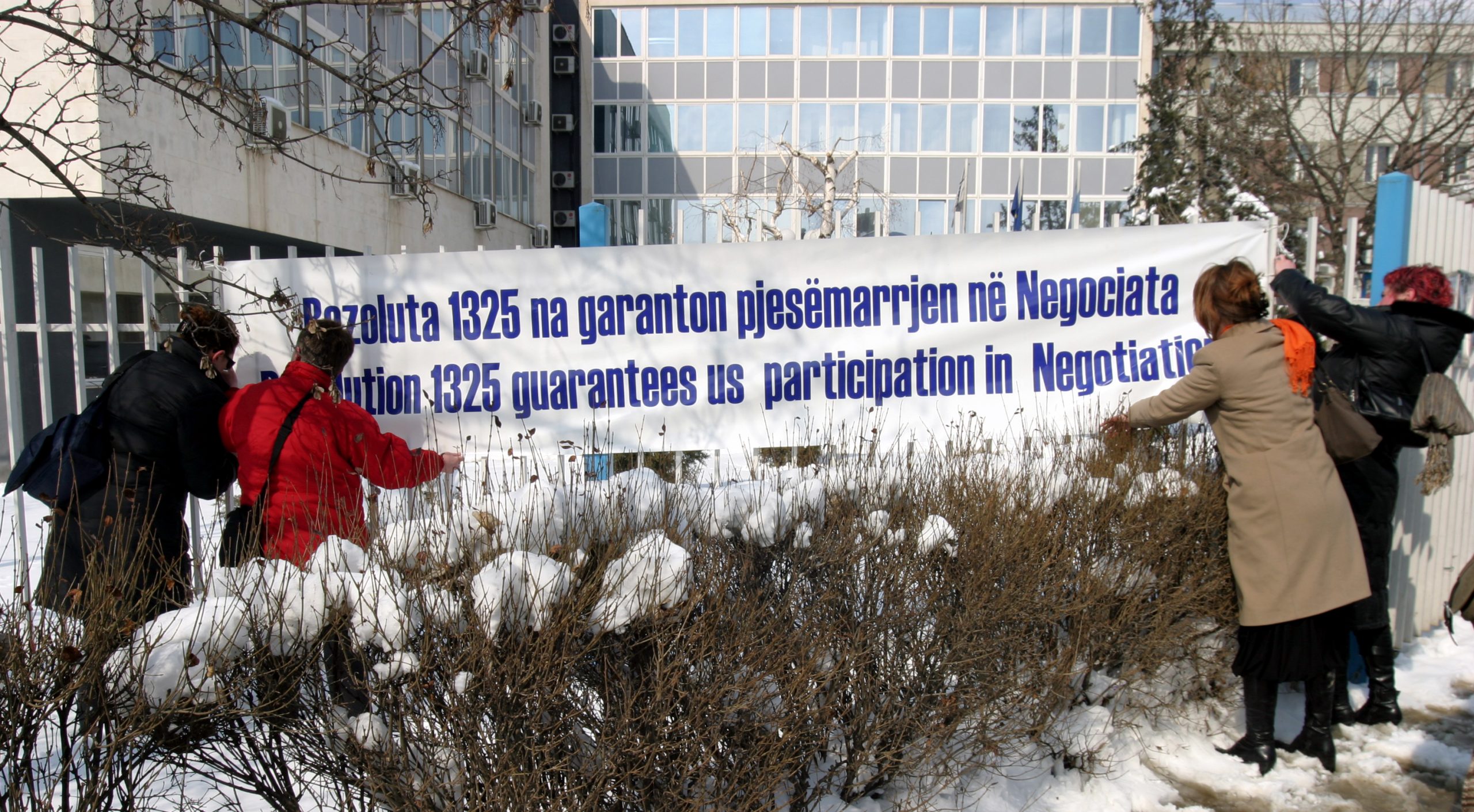Today the Kosovo Women’s Network (KWN) stands beside the women, men and children of Krushe e Vogel and Krushe e Madhe villages as they demand justice for war crimes perpetrated against them and their family members. We deplore the special department of the Court of Appeals’ recent ruling, which reduced the prior sentence of Darko Tasic from 22 years to only 11 years.
According to betimiperdrejtesi.com, Tasic has been accused of participating with Serbian police and military forces in looting, destroying and burning the property of civilians in Krushe, during an 11-day period from 15 to 26 March 1999. He has been found guilty of taking agricultural vehicles, among other valuable items, from people in the village, including specifically the Hajdari family, resulting in a seven-year prison sentence. The Special Prosecution indictment also charged Tasic with desecrating dead bodies, burning corpses together with other Serbian police and paramilitary forces and throwing corpses in the Drin River, near Krusha e Vogel.
The reduction of his sentence represents a blatant failure of Kosovo’s justice system to ensure justice for war crimes. Without justice, there cannot be lasting peace.
We wish to emphasise that the crimes he is accused of committing are indeed war crimes, as per Article 7 of the Rome Statute of the International Criminal Court, which defines ‘crimes against humanity’ as part of a widespread or systematic attack directed against any civilian population, including murder, extermination, deportation or forcible transfer of population, torture, sexual violence or persecution against any identifiable group based on political, racial, national, ethnic, cultural, religious and/or gender grounds.
We recall that United Nations Security Council Resolution (UNSCR) 1325 on Women, Peace and Security (2000), UNSCR 1620 on Children and Armed Conflict (2005) and UNSCR 1674 on Protection of civilians in armed conflict (2006) emphasisethe responsibility of all States to put an end to impunity and to prosecute those responsible for genocide, crimes against humanity and war crimes, including those relating to sexual and other violence against women and girls. In this regard, the UN has stressedthe need to exclude these crimes from amnesty provisions. Indeed, no agreement for amnesty exists between Kosovo and Serbia regarding war crimes. Nor should amnesty for crimes against humanity ever be allowed, in accordance with international law.
Together with the women of Krushe e Vogel, today we recall the unspeakable events that occurred on 26 March 1999, when 114 Albanian men civilians (70% of the men in the village) were separated from their families and massacred. The remains of 86 people in their village, including children, are still missing. We remember how the homes of Albanian families were burnt to the ground, their cattle killed and their fields destroyed. We recall how the women and children who survived were forced at gunpoint to walk down to the Drini River, where Serbian forces told them “drown themselves or walk to Albania”. We remember all too well sitting beside the women and children of Krushe when they returned home, after being refugees. In addition to mourning the loss of 114 of their family members, their livelihoods were in ruins without homes or any form of income.
Despite the aforementioned, well-documented war crimes perpetrated against civilians, there has been no official apology from the Government of Serbia regarding what occurred in Krusha e Vogel. Nor has there been appropriate justice for the aforementioned war crimes committed.
Despite their immense human and economic loss, the women of Krushe have found the fortitude to move forward. They have participated in democratic structures. They have learned to plough their fields, drive tractors, sell their products and make a living independently, all while facing serious gender stereotypes and seemingly insurmountable challenges.
At the very least, we have expected and awaited a strong message from our own institutions that war crimes will not be tolerated and that justice will be served. Kosovo’s justice institutions owe this much to the women of Krushe.
Therefore, we are deeply enraged at the grave injustice our own justice system has shown to the women of Krushe.
KWN is a network of 158 women’s rights organisations with the mission to support, protect and promote the rights and the interests of women and girls throughout Kosovo, regardless of their political beliefs, religion, age, level of education, sexual orientation and ability. KWN fulfils its mission through the exchange of experience and information, partnership and networking, research and advocacy. We remain committed to monitoring the implementation of UNSCR 1325 in Kosovo and in demanding justice for women where justice is due.





